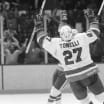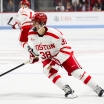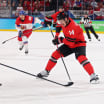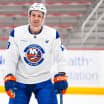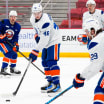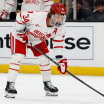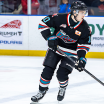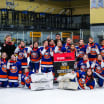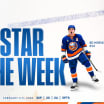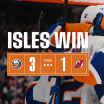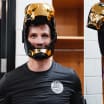Look in the New York Islanders history books and Billy Harris' name accompanies a lot of the team's first milestones.
He was the Islanders first-ever draft pick, taken by Bill Torrey first-overall in the 1972 NHL Amateur Draft in Montreal. He scored the team' first-ever goal and led the first-year Islanders in goals (28) and points (50). He still holds the team's ironman streak at a whopping 576 games, starting with the first game in franchise history.
Alumni Corner: Billy Harris
Billy Harris shares stories from the Islanders early years, owning an LA sports bar and becoming a candle maker
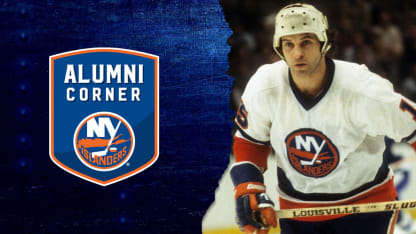
By
Cory Wright
NewYorkIslanders.com
Harris was an Islander from Day 1, or potentially even earlier. Torrey gave him a call late on a Sunday night about a month before the 1972 Entry Draft, letting him know the Islanders had won a coin toss with the Atlanta Flames for the right to the first pick. They were going to take him, a no-brainer after 129 points in 63 games with the Toronto Marlies.
"I knew a month before the draft that I was going to New York as the number one pick," Harris said. "I had to go to the draft in Montreal and act surprised."
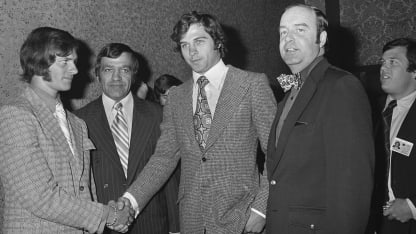
© Denis Brodeur/Getty Images
Harris was one of the stars of the expansion Islanders, headlining a new franchise that was experiencing some growing pains early on. The team's first year was as memorable off the ice as it was forgettable on it, as the Islanders won 12 games, then a dubious NHL record. It was experience that scarred some players, but battle-tested others. Harris joked the team's longest winning streak that season was "a win, a tie and a close one."
"It was a huge learning curve to be polite," Harris said. "You had to have a bit of a sense of humor. Thank god for the Washington Capitals, they came along and broke our record for ineptitude."
Personally, Harris had a good rookie season, with 28 goals and 50 points, but perhaps the biggest thing he gained was a close friendship with Eddie Westfall, a bond that started during the team's first training camp in Peterborough, ON and has endured to this day.
Harris learned plenty from the first Isles captain, but that didn't stop the duo from getting into plenty of hijinks. Harris recalled flying in Westfall's plane from Peterborough to Toronto for dinner and then back again late that night. The only catch was that after midnight, the runway lights were turned off, so the two teammates were trying to spot an airport while in the air. Naturally, they missed curfew - and that was not the last time either.
There was a road trip in Oakland, where Harris, Westfall and Craig Cameron drove to California wine country after a practice and - thanks to the gas shortage in the 1970s - ran out of fuel on their way back to the hotel.
"We were knocking on farmer's doors to see if we could buy some gas," Harris said. "It's my first year in the league and I'm stuck up here in Northern California, we missed curfew, which was long gone, and thought we might miss the game and be stuck here. That was just one road trip, stuff like that happened in every road trip."
There was also the time that only half of the team got on the Eastern Shuttle flight up to Boston, so they had to wait at the airport until the rest of the team, luggage and gear arrived. Or the time a bus got lost on the way to JFK. You get the idea.
Things were different in the second year after the arrivals of Al Arbour and Denis Potvin. Harris said Arbour immediately added some structure, tighter systems and valued the fundamentals. Harris remembers running through drills he'd teach at offseason hockey schools, having homework and learning where to be on the ice to facilitate breakouts. Harris added that a handful of players often scrambled to get their assignments in on time, resorting to writing them in on paper towel, or whatever else they could find. Either way it worked, as the Isles cut down on their goals against and became a more professional outfit.
"With Al coming in, there was a direction," Harris said.
When all else failed, Potvin could also carry the puck out of the zone and out of trouble.
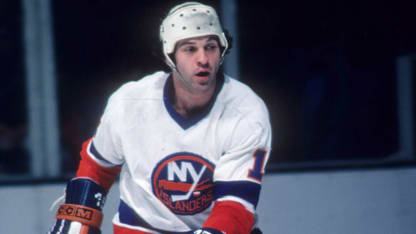
© B Bennett/Getty Images
The big leap forward came in 1975, when the Islanders upset the Rangers in a best-of-three series, culminating with JP Parise's series winner in OT in Game Three, before staging a 3-0 comeback vs Pittsburgh in the second round, then the second NHL team to pull off that feat.
"That year put us on the map," Harris said.
Harris' career was coming along nicely as well. He recorded a career-high 32 goals and 70 points in the 1975-76 season, with 67 and 60 points in the next two seasons respectively. In each of Harris' seven full seasons with the Islanders, he surpassed the 50-point plateau. He never missed a game in that stretch either.
It was becoming evident that the Islanders were marching towards greatness in the latter half of the 1970s. Clark Gillies, Bryan Trottier and Mike Bossy had joined the fold and were making an impact and by 1978-79, the Isles were the NHL's top regular season team, but couldn't replicate that success in the playoffs.
"You could see with Al Arbour's guidance, where we were going," Harris said. "It was just a matter of time, as far as I was concerned, before we won it. We kept getting closer and closer and closer every year and getting better, better and better."
The 1979-80 season is where things got tough for Harris. On Nov. 30, 1979, his ironman streak ended at 576 games when he was healthy scratched in Edmonton. Harris hadn't missed a game since his NHL career started and he was frustrated that it didn't end on his terms. Neither did his Islanders career, as he was dealt at the 1980 trade deadline - along with Dave Lewis - to LA for Butch Goring. The trade is celebrated as one of the best deadline deals in NHL history, but for Harris, it was tough to leave the team he'd spent so long with right on the precipice of a four Cup dynasty.
ALUMNI CORNER
MORE ALUMNI STORIES
Alumni Corner Homepage
Uwe Krupp
Steve Webb
Andy Sutton
Alexei Yashin
Michael Peca
Brendan Witt
"I was the sacrificial lamb," Harris said. "I was pretty pissed off about that, but there's nothing you can do about it."
Harris split the next four seasons between the LA Kings and Toronto Maple Leafs, but after a sturdy start to his career, was hampered by injuries. He hung up his skates after the 1983-84 season, 12 years in the NHL.
Harris has been busy since his playing days, getting involved in a variety of businesses. He returned to Long Island to work with some friends in the automotive industry, selling car radios in bulk to European manufacturers like Saab, Jaguar and Range Rover. He later managed a marina and a boat dealership in Ontario's cottage country until an opportunity came up to buy a bar in LA.
The bar was re-named Harry O's and became a well-renowned hockey hangout in Southern California. Harry O's often attracted both Kings players as well as the visiting team and Harris had game nights down to a tee. He had a guest spot on the Kings' pregame show, so he'd go to morning skates early in the day, the studio in the evening, the Forum for the game and then head back to the bar. Around 11 p.m., he'd hold the line so there'd be enough room for the teams to arrive without going over the building capacity and he said it was not uncommon for the team bus to drop off coaches and management at the hotel and take the players right to his spot.
As a former player, he knew guys would be hungry after a game and kept the kitchen open late and if the team had to be back at the hotel for a curfew, he'd send them back with a couple of cases of beer.
"Ran one of the most successful bars in LA for about 7-8 years," Harris said. "It was quite a place."
Harris' next restaurant venture in Nationwide Arena, home to the Columbus Blue Jackets, wasn't as successful, but the detour led Harris to into the candle-making business.
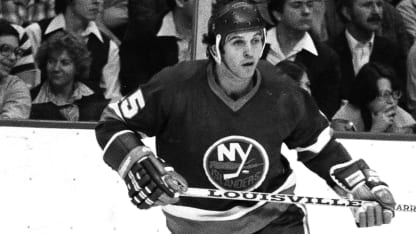
© Steve Babineau/Getty Images
It was serendipitous. Through a girlfriend, he met a candle maker who used soy bean wax, which burned two-to-three times longer than paraffin wax and didn't leave black soot stains on ceilings. Harris' business instincts kicked in and after the producer showed him how to make the specialty candles, and he founded the Muskoka Candle Company in 2003, hand pouring candles in a shed on his Rosseau, Ontario property.
He started selling them to local stores, but they caught fire (figuratively) and soon Harris was producing hundreds of candles a day, ordering pounds of wax by the thousands. He brought on a business partner, Stephanie McPhee, to help keep up with production and had several vats in his basement and garage where he'd melt the wax and mix different scents, a far cry from the coffee percolators from which he started.
"It really was candle making 101," Harris said. "It got bigger, bigger and bigger and we were making 200-300 candles a day and supplying 100-200 stores."
Harris was involved in the business for about 15 years - longer than his NHL career - before getting out of the candle game and seeking a more leisurely retirement and warmer winters. From hockey sticks to candle wicks was Harris' company motto at Muskoka, and that's a good way to sum up an adventure that started nearly 50 years ago on Long Island.
When Harris looks back now, it's the relationships he formed on Long Island that he remembers most, whether it's his weekly calls with Westfall, attending golf outings put on by former equipment manager Joe McMahon, or his business connections.
"All the people I met over the course of playing there and moving back there," Harris said of the role being an Islander played on his life. "I'm still very close with a lot of great people on the Island."


